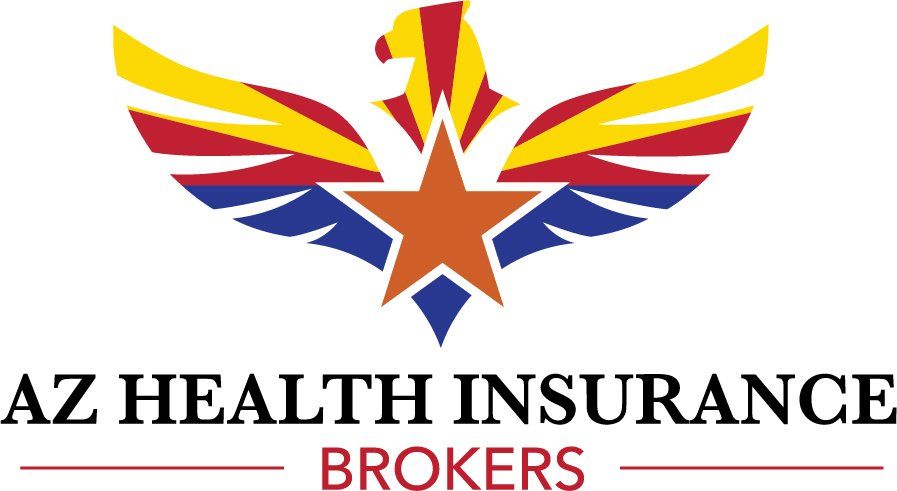What Is COBRA? An Employee’s Guide to COBRA Insurance
The
Consolidated Omnibus Budget Reconciliation Act (COBRA) can impact people when they experience certain life changes, such as losing a job, unemployment, retirement, divorce and death. When you need health insurance, and you’re considering COBRA, reference this guide for what to know about COBRA health insurance.

Key Takeaways
- Certain qualifying events may make an individual eligible for COBRA health insurance coverage, for up to 36 months, depending on the circumstance.
- In some cases, paying for COBRA insurance coverage can be much more expensive than choosing a private health insurance plan.
- To compare your options between COBRA insurance, private health insurance and other plans, it’s best to have a free consultation with an insurance broker who can present all options based on your unique healthcare needs.
Understanding COBRA
The U.S. Congress passed COBRA in 1985 to help Americans who lose their employer-sponsored group health insurance. Under COBRA, an employee who has experienced a qualifying event can continue to carry their employer’s business health insurance for up to 18 or 36 months, depending on the circumstances.
Who’s eligible to continue their work health insurance under COBRA? According to the U.S. Department of Labor:
- Employees and former employees
- Their spouses/former spouses
- Their dependent children
COBRA coverage enables employees and their families to take care of their essential medical needs, which include:
- Inpatient hospital care and emergency room visits
- Physician care
- Surgery and other major medical procedures
- Vision and dental care
- Prescription drugs
Who Qualifies for COBRA?
COBRA generally applies to all private-sector group health insurance plans maintained by employers that have more than 20 employees for at least 6 months out of the year. The employee must have been covered by their former employer’s group health insurance plan when one of these qualifying events occurs:
- A covered employee dies
- A covered employee loses their job or receives a reduction in hours for reasons other than gross misconduct
- A covered employee becomes entitled to Medicare
- A covered employee gets divorced or legally separated
- A child loses their dependent status (and coverage) under the employer’s plan
If you experience a qualifying event, your employer must notify you that COBRA is an option. You have 60 days from the time you’re notified to sign up for COBRA continuation coverage. If you reject COBRA and later change your mind, that’s OK – you can still sign up, as long as you’re within the 60-day period.
Please note: COBRA does apply to plans sponsored by state and local governments. It does not apply to health plans sponsored by the federal government, churches and some church-related organizations (more on that below).
How Long Does COBRA Last?
COBRA continuation coverage begins on the date of the qualifying event and extends for 18 or 36 months, depending on the nature of the event.
- Termination (for reasons other than gross misconduct) or reduction in hours: The employee, spouse and dependent child(ren) are eligible for 18 months of healthcare coverage. In certain circumstances, such as disability or the occurrence of a second qualifying event, you and/or your spouse and children may be entitled to 18 months of additional continuation coverage, for a total of 36 months.
- Employee enrolls in Medicare: The spouse and dependent child(ren) are eligible for 36 months. Some factors affect the actual period of continuation coverage, including whether your Medicare entitlement happened before or after your end of employment or reduction in hours. Contact the U.S. Department of Labor’s Employee Benefits Security Administration for more information.
- Divorce or legal separation: The spouse and dependent child(ren) are eligible for 36 months.
- Death of employee: The spouse and dependent child(ren) are eligible for 36 months.
- Loss of “dependent child” status under the plan: The dependent child is eligible for 36 months.
Does COBRA Cost Extra?
Yes. COBRA health insurance can cost quite a bit more than you were paying previously, depending on how much of your premium your employer paid for you. Your employer will likely require you to pay the full cost of the coverage, plus a 2% administration fee.
Can You Lose COBRA Coverage?
Yes, you can lose COBRA coverage. If your former employer stops offering group health insurance, or if they go out of business, you will lose COBRA coverage. There are other reasons you could lose COBRA coverage, including:
- You don’t pay your premiums.
- You enroll in a new group health insurance plan with a new employer, and that new plan has no waiting periods, coverage limits or exclusions.
- You become eligible for Medicare.
Alternatives to COBRA
As mentioned, employees of the federal government, churches and some church-related organizations do not qualify for COBRA. Federal employees may be able to continue their health benefits through something called Temporary Continuation of Coverage (TCC), which is similar to COBRA. Talk to your human resources representative if you think this applies to you.
If you’re a federal employee who doesn’t qualify for TCC, or if you work at a church or related organization, you will have to find another way to obtain health insurance.
In addition, just because you are entitled to elect COBRA, that doesn’t mean it’s always a good idea to take it. You might find more affordable individual health insurance or family health insurance coverage through any of the following means.
1. Join your spouse’s employer-sponsored plan
Losing your health insurance counts as one of the qualifying events that allows your spouse to add you to their plan outside of the usual enrollment period. If your spouse has their health insurance through their employer and you want to join, they must request special enrollment within 30 days of you losing your previous health insurance.
2. Obtain insurance through the ACA marketplace
You can also explore your available options on the Affordable Care Act (ACA) marketplace (also known as the “ACA exchange”) or your state’s health insurance marketplace, if your state has one. If you’re looking for health insurance in Arizona, know that Arizona doesn’t have a state health insurance marketplace. You’ll need to use the federal ACA marketplace.
The same event that qualified you for COBRA also qualifies you to receive a special enrollment period to obtain a plan on the ACA marketplace.
Health insurance plans purchased through the ACA marketplace may be eligible for two subsidies to defray the cost of insurance:
- The premium tax credit health insurance subsidy, which is a tax credit that lowers monthly premiums
- The cost-sharing subsidy, which may qualify you for cost-sharing reductions
Important: You cannot use these subsidies to help reduce your COBRA costs. These subsidies are only available on plans purchased through the ACA exchange.
If you want to take advantage of these subsidies, you’ll have to reject COBRA continuation coverage and enroll in an ACA plan during your 60-day special enrollment period. Remember, there are additional income and other requirements to qualify for a subsidy. Learn about these requirements at Healthcare.gov.
>>Read more: A Guide to Health Insurance in AZ
3. Purchase a private policy
Another option is to purchase a private policy through a broker or agent. Here’s the good news: when you purchase a private policy through a professional health insurance broker, oftentimes you can get a plan that’s less expensive than COBRA and that’s better tailored to your individual needs. An insurance professional can help you find a plan that saves you money by not overpaying for plan features you probably won’t use.
Tax Credits and Deductions
If you’re looking at other possible ways to reduce the high cost of COBRA, there’s a tax deduction that could help reduce the cost of health insurance, including COBRA continuation coverage. Under current Internal Revenue Service (IRS) regulations, you may be able to claim a deduction on your taxes if total healthcare costs – including COBRA premiums – exceed 7.5% of your adjusted gross income on your federal tax return.
Questions About COBRA? Contact AZ Health Insurance Brokers
If you have any questions about COBRA or health insurance in general, please reach out to the friendly team at AZ Health Insurance Brokers. We’re happy to talk about your specific situation and determine what your options are.
Remember that with private health insurance plans, you can customize the type of coverage you get based on your needs and budget. This means, we can likely get you into a great health insurance plan that’s cheaper than what you’d pay for COBRA.
Work through all this with an insurance professional. The experts at AZ Health Insurance Brokers would love to help you.
Contact us online, call 602.617.4107 or email
quotes@azhealthinsurancebrokers.com.
COBRA FAQs
What is COBRA?
COBRA stands for the Consolidated Omnibus Budget Reconciliation Act. It’s a federal law that allows eligible employees and their dependents the continued benefits of health insurance coverage when an employee loses their job or experiences a reduction in work hours.
Who is eligible for COBRA coverage?
COBRA coverage is available to employees who were covered by a company-sponsored health insurance plan on the day before a qualifying event occurred (such as termination for reasons other than gross misconduct, or reduction in hours) that caused them to lose their health benefits. Dependents covered under the health plan at the time of the qualifying event are also eligible.
What qualifies as a COBRA qualifying event?
Qualifying events for COBRA include involuntary or voluntary job loss, reduced number of hours worked, divorce, death, transition between jobs and other life events that lead to loss of health insurance coverage under a group health insurance plan.
How long does COBRA coverage last?
COBRA coverage can last for 18 months following a job loss or reduction in work hours. However, the coverage may extend up to 36 months for other qualifying events, such as the death of the covered employee, divorce or loss of dependent status.
How much does COBRA coverage cost?
COBRA coverage costs can be up to 102% of the plan’s total cost of coverage, which includes the portion previously paid by the employer and the employee’s contribution, plus a 2% administrative fee.
What steps must I take to elect COBRA coverage?
After a qualifying event, your employer must provide a COBRA election notice to you within 14 days. You then have 60 days from the notice date or from the date you lost coverage, whichever is later, to get COBRA coverage.
How do employers administer COBRA?
Using a third-party administrator (TPA) to handle COBRA administration is a highly effective and efficient method for offering COBRA coverage to your employees. TPAs specialize in managing the complexities of COBRA compliance, ensuring that both the employer and employees adhere to the legal requirements and timelines associated with COBRA coverage.
Do I need to offer COBRA for my employees?
As an employer, you are required to offer COBRA continuation coverage if your business has 20 or more employees, and you provide a group health insurance plan. This federal requirement ensures that employees and their families can maintain health insurance coverage for a period after experiencing qualifying events that would normally result in the loss of coverage, such as termination of employment or a reduction in work hours. State laws may also require offering similar benefits for smaller businesses, often referred to as “mini-COBRA”.
How do I know if my employer is required to offer COBRA coverage?
Generally, private sector employers with 20 or more employees that offer group health insurance plans are required to provide COBRA coverage. This also applies to state or local governmental employers.











